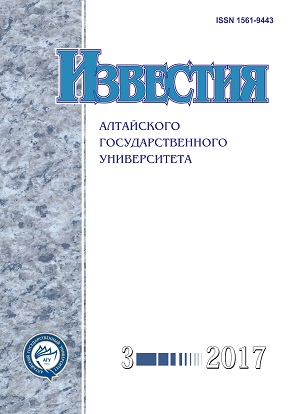Subsidiary Prosecution in Adversarial System
Abstract
The article is devoted to prosecution function in adversarial criminal procedure by the victim of crime. It is also refers to the victim’s right to participate in public criminal prosecution, as well as to the notion of “subsidiary prosecution”. Accusatorial activities of the injured person are executed, as a rule, within the scope and the limits of the accusatorial function of public servants, acting ex officio. The victim’s right to present an independent legal position on the subject and scope of prosecution is analyzed along with the forms of its expression in public prosecution cases. The author suggests expanding opportunities of the victim to take part in the establishment of proof process, in particular, to formalize the right of the victim to formulate his position on the basic issues of the charge in the special document giving the basic arguments. That will help the victim to take part in the proof of facts which in some situations can change the line of prosecution.
DOI 10.14258/izvasu(2017)3-04
Downloads
Metrics
References
Ларин А.М. Расследование по уголовному делу: процессуальные функции. - М., 1986.
Строгович М.С. Курс советского уголовного процесса. - Т. I. - М., 1968.
Михайловская И.Б. Цели, функции и принципы российского уголовного судопроизводства (уголовно-процессуальная форма). - М., 2003.
Постановление Пленума Верховного Суда РФ от 29 июня 2010 г. № 17 «О практике применения судами норм, регламентирующих участие потерпевшего в уголовном судопроизводстве» (ред. от 16.02.2017) // СПС Консультант Плюс.
Лазарева В.А., Иванов В.В., Утарбаев А.К. Защита прав личности в уголовном процессе России : учеб. пособие для магистров. - М., 2011.
Полянский Н.Н. К вопросу о праве частных лиц на субсидиарное обвинение // Юридический вестник. - 1914. -Кн. VI (II).
Полянский Н.Н. К вопросу об участии частных лиц в публичном обвинении // Юридический вестник. - 1915. - Кн. IX (I).
Александров А.С. Субсидиарный уголовный иск // Государство и право. - 2000. - № 3.
Александров А.С. Понятие и сущность уголовного иска // Государство и право. - 2006. - № 2.
Постановление Пленума Верховного Суда РФ от 20 декабря 1994 г. № 9 «О некоторых вопросах применения судами уголовно-процессуальных норм, регламентирующих производство в суде присяжных» (пункт 9) // СПС Консультант Плюс.
Постановление Конституционного Суда РФ от 8 декабря 2003 г. «По делу о проверке конституционности положений статей 125, 219, 227, 229, 236, 237, 246, 254, 271, 378, 405 и 408, а также глав 35 и 39 Уголовно-процессуального кодекса Российской федерации в связи с запросами судов общей юрисдикции и жалобами граждан» // СПС Консультант Плюс.
Петрова Н.Е. Частное и субсидиарное обвинение. - Самара, 2004.
Аширбекова М.Т. Права и законные интересы потерпевшего: общее и особенное в нормативном обеспечении // Актуальные проблемы обеспечения прав участников уголовного судопроизводства / под ред. Н.С. Мановой. - М., 2016.
Петрухин И.Л. Запрет поворота к худшему в российском уголовном процессе // Государство и право. - 2006. - № 3.
Copyright (c) 2017 Izvestiya of Altai State University Journal

This work is licensed under a Creative Commons Attribution 4.0 International License.
Izvestiya of Altai State University is a golden publisher, as we allow self-archiving, but most importantly we are fully transparent about your rights.
Authors may present and discuss their findings ahead of publication: at biological or scientific conferences, on preprint servers, in public databases, and in blogs, wikis, tweets, and other informal communication channels.
Izvestiya of Altai State University allows authors to deposit manuscripts (currently under review or those for intended submission to Izvestiya of Altai State University) in non-commercial, pre-print servers such as ArXiv.
Authors who publish with this journal agree to the following terms:
- Authors retain copyright and grant the journal right of first publication with the work simultaneously licensed under a Creative Commons Attribution License (CC BY 4.0) that allows others to share the work with an acknowledgement of the work's authorship and initial publication in this journal.
- Authors are able to enter into separate, additional contractual arrangements for the non-exclusive distribution of the journal's published version of the work (e.g., post it to an institutional repository or publish it in a book), with an acknowledgement of its initial publication in this journal.
- Authors are permitted and encouraged to post their work online (e.g., in institutional repositories or on their website) prior to and during the submission process, as it can lead to productive exchanges, as well as earlier and greater citation of published work (See The Effect of Open Access).








